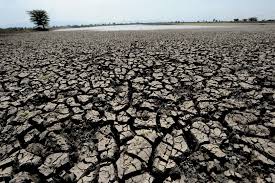International partners must help the continent’s most vulnerable countries adapt to extreme climate conditions, otherwise the consequences could become more serious.
Climate change poses serious threats to African countries, especially fragile and conflict-affected states. It will be important that leaders find solutions to support vulnerable countries in the face of these harms. From the Central African Republic to Somalia and Sudan, fragile states are exposed to more floods, droughts, storms and other climate-related shocks than others, even though they contribute the least to climate change. Every year, three times more people are affected by natural disasters in at-risk countries than in other countries. Disasters in vulnerable countries displace more than twice as many people as in other countries.

Temperatures in at-risk countries were higher than in other countries due to their geographical location. By 2040, fragile countries may face 61 days a year of temperatures more than 35 ° C- four times more than other countries. The intense heat, as well as the most common weather events that accompany human health and productivity and jobs in the main sectors such as agriculture and construction. A new IMF study shows that climate change causes long-term macroeconomic pain for fragile countries. Cumulative GDP losses amounted to about 4% in vulnerable countries after three years of extreme weather events. Compared to about 1% in other countries. Drought in at-risk countries is expected to reduce per capita GDP growth by about 0.2 percentage points annually. This means that income in weak countries will be lower than in other countries.

Most of the negative impacts of climate events in fragile states are due not only to their geographical location in warmer regions of the planet, but also to conflicts, dependence on rain-fed agriculture, and low capacity to manage risks. Conflicts weaken the ability of fragile states to manage climate risks. For example, in Somalia, the areas most affected by food insecurity and famine due to prolonged drought in 2021-2022 are under the control of terrorist groups that have impeded humanitarian aid supplies. Conflict and famine
Climate shocks also exacerbate underlying fragile situations, such as conflict and famine, exacerbating their impacts on economies and people’s well-being. Our estimates suggest that under the high emissions scenario and all other similar scenarios, conflict deaths as a percentage of the population could increase by approximately 10% in fragile states by 2060. Climate change will also push an additional 50 million people in vulnerable countries into hunger by 2060.
The high losses resulting from climate events also reflect the dependence of fragile countries on rain-fed agriculture. Agriculture represents nearly a quarter of economic production in fragile countries, but only 3 % of agricultural areas are narrated by channels, tanks, etc. Rain farms are especially vulnerable to drought and floods. Where irrigation infrastructure exists, it is often poorly designed, abandoned, or damaged by conflict.
For example, in central Mali, floods along the Niger River were partly caused by farmers fleeing fighting and collapsing drainage ditches.
Sudan’s Al Jazeera irrigation program used to cover 8,000 square kilometers of fertile agricultural land, but has been reduced to less than half of this area due to poor maintenance.
Finally, the high losses resulting from climate shocks are also due to a lack of financial resources. Although financing for climate change adaptation far exceeds what fragile and conflict-affected countries can afford on their own, significant and sustained support from international development partners – both concessional financing and capacity development – is urgently needed to avoid famine and drought. Exacerbation of conflicts that have the potential to provoke coercive conflict. Displacement and migration.

Political considerations
For policymakers in these countries, key interventions include policies that facilitate immediate responses to climate shocks, such as creating safety margins by raising revenues domestically, reducing public debt and budget deficits, as well as increasing international reserves. The research finds that fragile countries with such buffer zones face recurring extreme weather events more quickly.
Strengthening social safety nets and benefiting from insurance programs is also an essential element in financing disaster recovery. In addition, fragile states must implement policies that increase resilience to climate change over time, including increased investments in climate-resilient infrastructure.
The IMF is increasing its support for fragile countries facing climate challenges through carefully tailored policy advice, financial support and capacity development.
Our strategy encourages a deeper understanding of the causes of fragility, adaptation of programmes, enhanced capacity development and coordination with other partners working in other countries. We also provide financial support through standard facilities, emergency financing, and most recently through the new Recovery and Sustainability Facility. These efforts by the IMF and other ongoing initiatives by international partners still represent only a drop in the significant efforts required by the entire international community to protect the most vulnerable people.

A displacement camp for people impacted by drought in Baidoa, Somalia, in Sept. 2022.
The African Climate Summit could be a step forward in finding effective solutions to mitigate the devastating impact of natural disasters and droughts on the continent’s population and economy.
—This post reflects the research contributions of Laura Jaramillo, Aliona Sibotari, Yuro Diallo, Riya Gupta, Yugo Koshima, Chandana Kolaratne, Daniel Jeong-dae Lee, Sidra Rahman, Kalin Tentchev, and Fang Yang.


